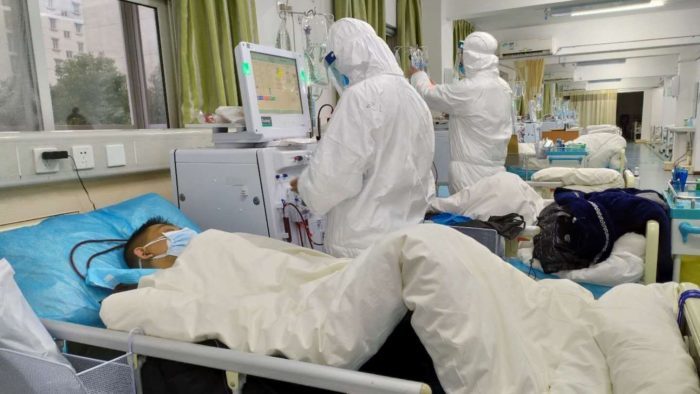A patient who was placed under surveillance at a hospital in Egypt over suspicion of Covid-19 (coronavirus) has tested negative.
The patient, said to be a foreigner, was reported as Africa’s first coronavirus case on February 14.
But four days later, the Egyptian health ministry and the World Health Organisation announced that repeated polymerase chain reaction (PCR) analysis, a test conducted on coronavirus patients, came out negative when the patient was examined.
Khaled Megahed, the health ministry’s spokesperson, said a medical team had been conducting periodic checks and analysis on the patient.
According to him, the PCR analysis was conducted six times over three consecutive days, under the supervision of the health ministry and the WHO – the results proving negative each time.
He, added that the patient will, however remain under quarantine for the next 14 days.
The news comes two days after Kem Daryl, Africa’s first coronavirus patient, recovered from the virus.
Daryl, a Cameroonian student living in the Chinese city of Jingzhou had contracted the disease and placed under a 14-day quarantine.
Unlike other victims, Daryl began to show signs of recovery after two weeks in isolation at a local Chinese hospital.
The computerised tomography (CT) scan carried out on him had thereafter showed no sign of the illness.
When he was discharged from the hospital, Daryl said he never thought of leaving China because he did not want to import the disease to Africa.
“No matter what happens, I don’t want to take the sickness back to Africa. When I was going to the hospital, I was thinking about my death and how I thought it was going to happen,” he said from his varsity dormitory, where he was being quarantined.
Coronavirus has been confirmed in Singapore, UK, Spain, Vietnam, Germany, UAE, France, Japan, Thailand, Canada, Australia, Italy, Russia, the United States, among other countries.
Over 64,000 cases of the disease have been recorded worldwide, with about 1,800 deaths.
WHO had declared the outbreak a global health emergency, appealing for $675 million to fund a three-month response plan.



